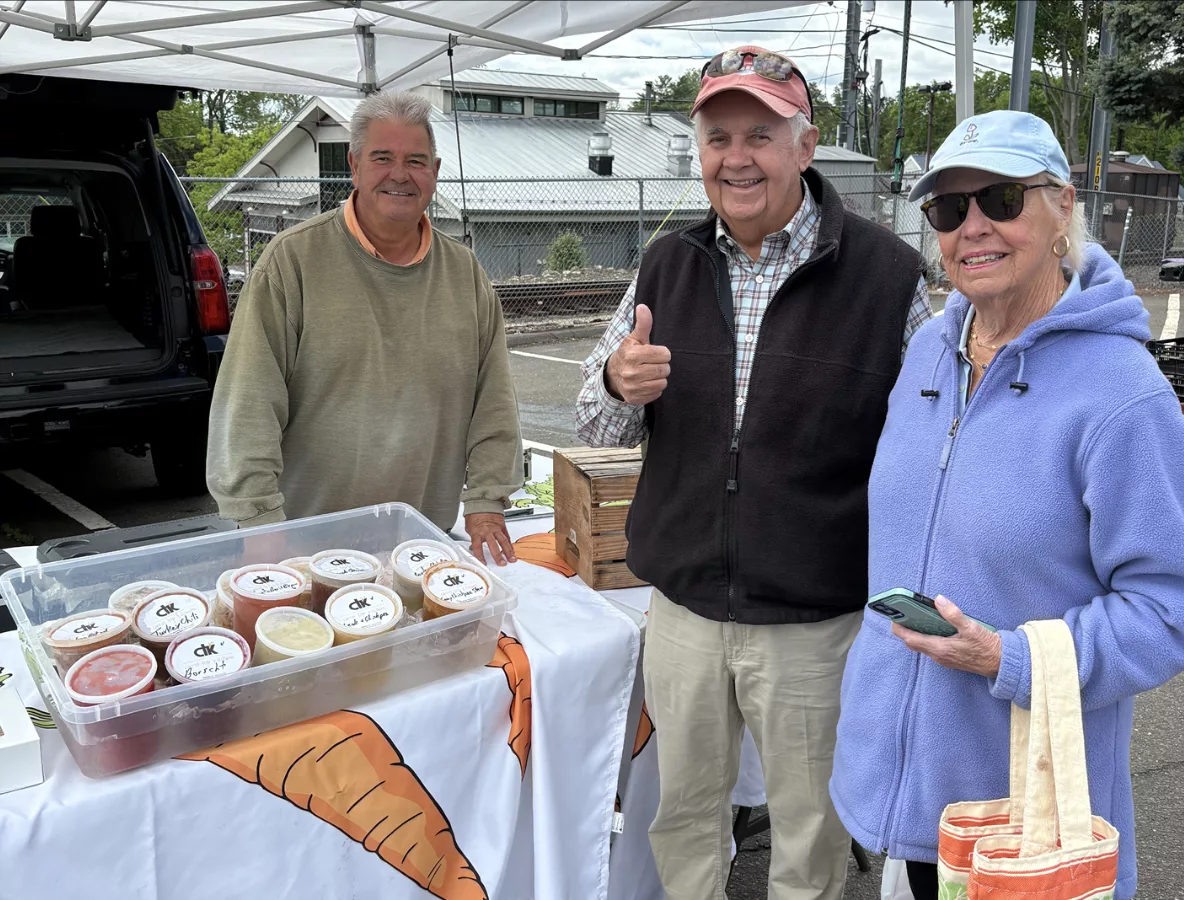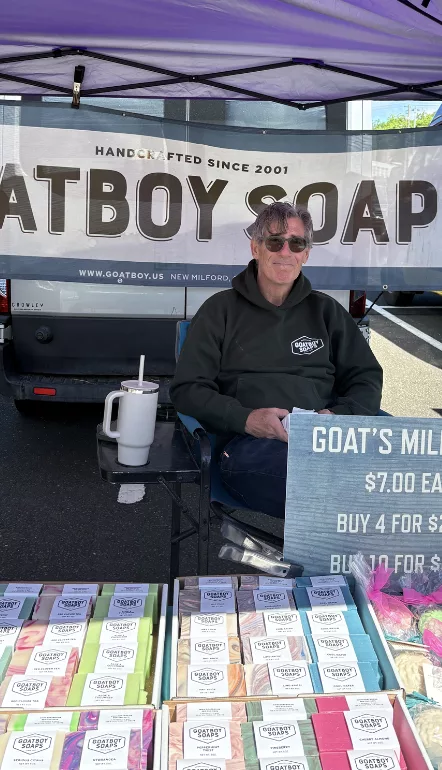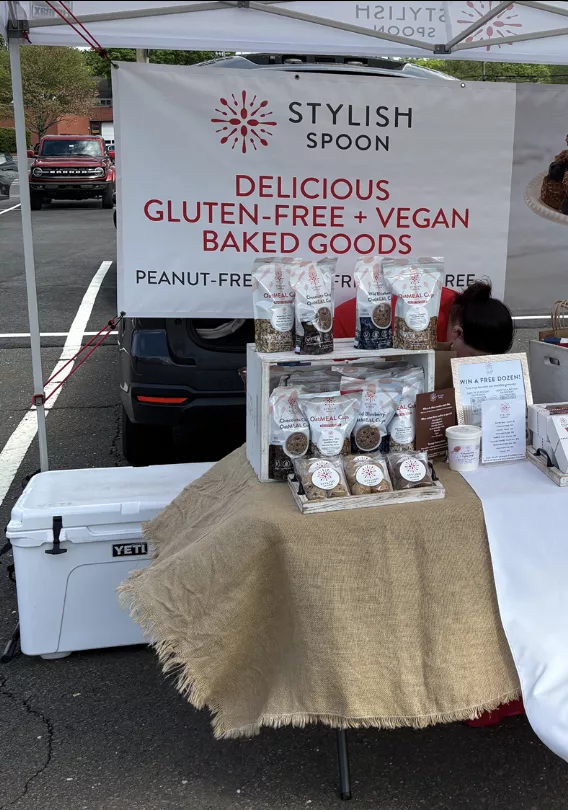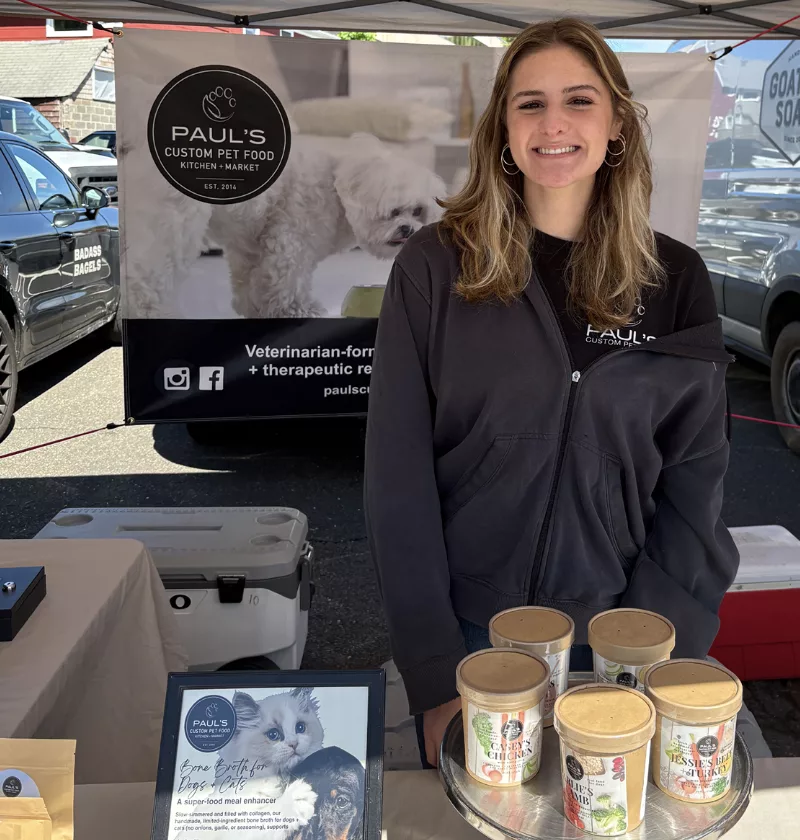
By Elizabeth Barhydt
When Lexi Gazy talks about the New Canaan Farmers Market, she’s describing more than a place to buy peaches or pasture-raised pork. She’s painting a vision of community resilience, environmental stewardship, and personal connection-one that begins with a handshake and ends with a reusable jar of almond butter.
For 26 years, Gazy has served as Market Master, guiding the market as a living, breathing example of what “local” can and should look like. “It’s not about me,” she insists. “We lean on each other. That’s the beauty of it.”
A Web of Local Support
The market’s vendors don’t just sell side by side-they support each other’s businesses. Kneads Bakery sources vegetables from Riverbank Farm. An empanada stand buys ingredients grown across the aisle. “Of course we try to use each other. It creates a local flavor,” Gazy says. “People want to have a local dish on their table.”
That desire for local goes far beyond taste. “Food consumption in the state is only 4% Connecticut grown,” Gazy explains. “Ninety-six percent of our food is imported. That’s bad for food security.” In an emergency, she notes, “If we doubled tomorrow, we’d still only be at 8%.”

Stewards of the Land
Supporting local farmers is, for Gazy, both a practical and philosophical imperative. “You’re supporting a Connecticut farmer who is taking care of land that would otherwise be developed, which is not sustainable,” she says. “His son and his daughter-hopefully, they’ll want to take on that heritage and that legacy… We need more stewards of the land.”
And supporting that stewardship often comes down to consumer choice: choosing a $45 filet at the farmers market over a $38 filet at a chain grocer. “You’re not just buying food,” Gazy says. “You’re investing in sustainability, in community, in the future of farming in this state.”
She believes in starting young, too: “There are many ways to feed children, but it has to start with education. Farmers need to be seen as essential in school systems. Without farmers, you can’t do anything.”
She shares a saying she’s heard before but holds dear: “Pharmacy, spelled F-A-R-M, not P-H-A-R-M.” Eat local, she believes, and you might just need fewer prescriptions.

Poetry, Recipes, and a Personal Touch
Gazy’s role at the market extends far beyond logistics. Each week, she writes a newsletter for the market, including an original poem. “Maybe we could print them in the paper,” someone suggested recently. Her reply was instant: “I would love that.”
She’s also quick to offer recipes on the fly. One favorite? Homemade salad dressing. “Take these herbs. Chop them up. Throw them in the processor with some olive oil and a vinegar,” she says. “Local starts with the salad dressing.”
Reducing Waste, Building Community
The market partners with Food Rescue, which picks up unsold produce at the end of the day and redistributes it. “They come at the end of the day and they pick up all our local produce that we have extra,” Gazy says. “And they distribute it.”
Each Saturday, shoppers walk between tents, sampling kombucha brewed in South Norwalk, trying gazpacho made in a Black Rock kitchen, buying goat milk soap from a family in New Milford. “We’re here every Saturday,” a vendor says with pride, handing over a jar of fresh-ground almond butter in a glass jar. “It ticks all the boxes.”

A Generational Lifeline
For Gazy, the market is about legacy. “My husband is working with our youngest. He’s a partner on the farm now, so he is fourth generation,” she says. “They’re working to turn the farm into a more organic regenerative operation. That’s a lot of investment in time, which you can’t financially make back unless you are supported by the local neighborhood.”
Support, in this market, doesn’t come from apps or clicks. “The local newspapers… they’re where our patrons come from. Not so much social media,” Gazy says. “They want news. They don’t want garbage propaganda on all sides.”
Market Regulars: Bill & Susan Brock
Among the bustle, Bill and Susan Brock are familiar faces. Bill is here for one thing above all: gazpacho. “Gazpacho is my thing,” he declares. “Mr. Bill does it. I love it, love it, love it.” He’s talking about Mr. Bill Anastas, co-owner of a prepared foods business run with his wife, Victoria. “It’s a soup you can chew,” Bill insists. That unique, hearty texture has kept him coming back for five years.
Susan Brock is just as engaged-if slightly more exploratory in her choices. She’s also a connector, introducing newcomers and even this reporter to Lexi Gazy, ensuring the story of the market is told in full.
In the end, the New Canaan Farmers Market isn’t just a collection of pop-up tents. It’s a generational lifeline. A small, vibrant stand against disconnection. A salad dressing revolution. And it’s led by someone who has never stopped believing that local matters most.
“You’re not just buying food. You’re investing in sustainability, in community, in the future of farming in this state.” – Lexi Gazy



